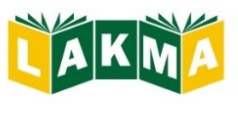Adrian Holliday is Professor of Applied Linguistics at Canterbury Christ Church University in the Department of English & Language Studies, where he directs the PhD in Applied Linguistics. He started his career in ELT with the British Council in Iran in the 1970s, as a teacher of English and ESP. He did his masters degree at Lancaster University in 1980, and his PhD there in 1991. Between 1980 and 85 he was instrumental in setting up the ESP Centre at Damascus University. Between 1985 and 90 he was involved in a national university curriculum project in 18 universities in Egypt. While at Canterbury Christ Church University, in the 1990s he became chair of the British Association of TESOL Qualifying Institutions and developed an early accreditation scheme for British teacher education courses across all sectors. In the last twenty years he has carried out seminars and spoken at conferences in a wide range of locations. He is known for coining the terms BANA and TESEP, which refer respectively to the British, Australasian & North American private sector and tertiary, secondary and primary education in the rest of the world. He has also written about ‘small cultures’ and ‘native-speakerism’ as well as qualitative research methods and intercultural communication. His current interest is in how English language students can build on their own cultural backgrounds, identities and experience to take full ownership of English. His most recent book, Understanding intercultural communication: negotiating a grammar of culture, Routledge 2013, describes in detail how our daily engagement with culture equips us to deal with the culturally foreign.
More details can be found at adrianholliday.com.
PLENARY TALK
Culture and Authenticity: Hidden Potentials
The last fifteen years has revealed new understandings in ELT. There has been an appreciation of the nature of a globalised world in which English can no longer be associated simplistically with Anglo-Saxon origins. Coming from critical applied linguistics and cosmopolitan sociology there is an emerging appreciation of cultural realities which have long been unrecognised by the native-speakerist establishment. New ethnographies have shown us rich and creative modes of student learning which, out of the sight of teachers, have also been unrecognised by established professional practices. A new, non-essentialist paradigm in intercultural communication revises the relationship between English and culture.
This paper explores what teachers need to know if they are fully to appreciate and to encourage the contribution of their students’ existing cultural experience in the learning of English. This contribution is based on what students already know about language and culture within their own communities. Focusing on what students bring with them in this way requires a reassessment of the meaning of ‘authentic’. Authentic materials have often been defined as comprising unsimplified language from real situations. We need to redefine ‘real’ and ‘authentic’ as what is meaningful to the students, their lives and their communities. Teachers may need to leave behind the established notion of one-language-one-culture, and the idea that learning English means learning a new culture and leaving behind one’s existing culture. Instead, they need to appreciate the deep connections between existing and new languages and existing and new cultural realities. A core concept is that of linguaculture – small connections between language and culture which can be carried from one language to another and which enable students to stamp their identities on English.
WORKSHOP 1
The Cultural Content of EFL Classes
This workshop will look at the relationship between language and culture. It will consider the cultural content in the classroom and the aims of teaching intercultural communication. It will consider what is the necessary intercultural knowledge for teachers and students and the classroom strategies for teaching intercultural communication within the context of the role of English in the world.
WORKSHOP 2
Exploring Cultural Resources
This workshop will consider classroom and investigative activities which will help language learners to explore their existing cultural experiences and make them resources for engaging with English.
